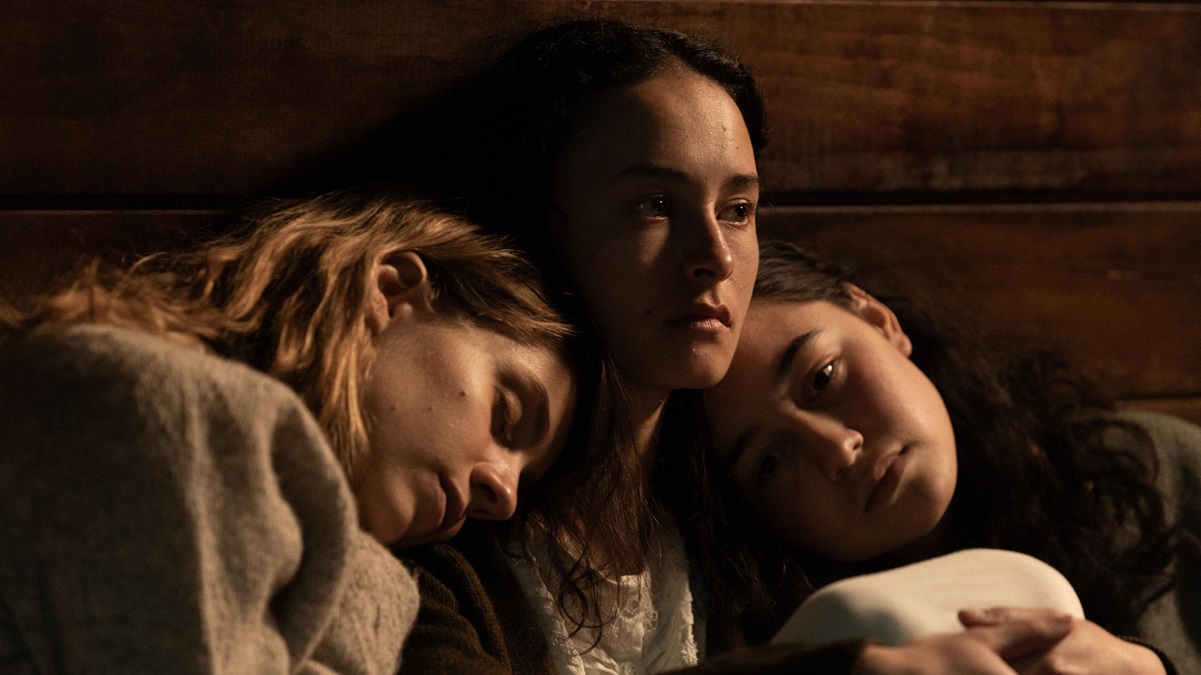
It’s chilling to contemplate how many people have been classified as 'other' or 'undesirable' throughout history. As a result many have been subjected to horrific and dehumanizing treatment. Conditions perceived as abnormal and deplorable have often been used to justify incarceration or forced rehabilitation. We Were Dangerous looks at a group of girls deemed incorrigible and forced to work towards becoming socially acceptable women, and a few who refused to let their personalities be erased by a repressive and backward-thinking society…
Set in 1954 in New Zealand, We Were Dangerous begins with the escape attempt of Nellie (Erana James) and Daisy (Manaia Hall) from a school for delinquent girls. As a result of their unsuccessful efforts, the school is relocated to an island where its reluctant students can be more properly and easily kept away from the outside world. The arrival of Lou (Nathalie Morris) results in an unexpected friendship of different spirits, all united by their desire to remain hopeful and resilient while under strict surveillance from the coldhearted matron (Rima Te Wiata).
This film, the feature debut of director Josephine Stewart-Te Whiu, is hardly a big-ticket item at SXSW, lacking any international stars or a big budget. But it’s a real gem, one that showcases extraordinary breakthrough performances and strong storytelling. Its premise and many of its scenes are grim and disturbing, but there’s a great deal of humor to be found in the way that Nellie, Daisy, and Louis approach their situation. They find joy in little moments and in the ways that they are able to outsmart their cruel matriarch, who insists on stripping them of any individuality.
The character of the matron is especially intriguing because she truly does believe that she’s working in the name of a higher power. She’s shown in a flashback as a young nun slapping another nun after catching her reading a book hidden under her bible, a dress rehearsal for the type of embarrassment and discipline she encourages for her charges. She’s most reminiscent of Aunt Lydia in The Handmaid’s Tale, though she has less affection for the girls she subjugates and instead seeks only to improve society as a whole by reforming them or, if that’s not possible, keeping them from spreading their perceived toxicity.
In just eighty-two minutes, this film tells a story that presents rich and memorable characters, young girls driven by imagination and a desire not to be told what they can and can’t do. James in particular impresses, and the film smartly chooses to do brief introductions to each major character’s backstory that last just one short scene each, inviting audiences to fill in the blanks of their pasts and futures. This film leaves much to ponder in its poignant and lingering portrayal of youth and the human potential for cruelty. B+
We Were Dangerous makes its world premiere in the Narrative Feature Competition at the 2024 SXSW Film and TV Festival.